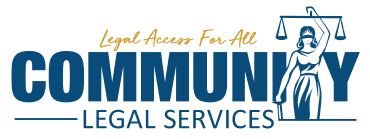People who take out a loan to purchase a home in Florida typically sign a promissory note and a mortgage. A promissory note is a document containing the borrower’s promise to repay the loan, as well as the terms for repayment. The mortgage creates a security interest in the property. It is the mortgage that allows the lender to take back the home if the borrower does not make payments.
If you miss a monthly payment, most loans include a grace period of 10 or 15 days, after which time the servicer will assess a late fee. After enough payments have been missed, the lender will file a foreclosure lawsuit in court to take back the home.
What Are Your Rights?
A Notice of Default is sent by mail, usually after you have missed 3 payments. You may dispute the default, but it must be in writing.
At this point, you can reinstate the mortgage by paying all past due amounts.
If you have the ability to resume making payments, you can request a modification from your lender. A modification is not guaranteed, but if offered it may lower your interest rate, stretch out the number of years left on the loan, or add the missed payments and fees to the end of the loan. The modification offered is based on your lender’s own policies, and the court cannot force the modification.
If there is equity in your home (the house is worth more than the amount still due on the mortgage) you can attempt to sell the home and keep the profit after paying off the mortgage and other fees. While attempting to sell the property, you should continue to defend the foreclosure lawsuit so you have enough time to complete the sale.
If there is no equity in your home and you are unable to receive a modification, you may request “Cash for Keys.” This is an agreement between you and the lender, where they agree to give you a certain amount of money in exchange for you agreeing to move out on a specific day and leave the house in “broom swept” condition. Cash for Keys is not a right and the lender does not have to grant it. But if you find yourself in this situation, you should always ask.
This is an agreement between you and the lender where you agree to sign the property back to them without the need for a foreclosure lawsuit. This is often used in connection with Cash for Keys.
During a Chapter 13 Bankruptcy you will set up a payment plan to repay your debts. The past due amount on your mortgage can be included in this payment plan, which will give you time to catch up. However, to use this option, you must be able to afford the payments required. Please visit our Bankruptcy Page for more information about how it could help you prevent foreclosure.
What Do You Need to Do?
Carefully review all of your mortgage and loan documents and any notices you receive from the servicer and/or lender. These documents explain your rights and responsibilities as the borrower. If you need help understanding the loan documents, contact us to see if we can help.
Do not ignore the notices you receive. The notices you receive before the foreclosure will tell you how to deal with the missed payments, such as requesting a modification.
Contact the lender as soon as possible. The longer you wait to resolve the missed payments, the harder it is to get caught up because the lender will continue to add fees and interest to the debt.
Determine the value of the home. In order to sell the home, you must know its value and the amount still due on the mortgage. You should start this process early. If the case is settled, you can always take the house off the market, but if you wait too long, you may lose your chance to sell the property.
A foreclosure lawsuit is filed if there is no settlement after the Notice of Default. The summons and complaint may be personally delivered to you by the sheriff or a certified process server. This is called “service of process.”
You must write and file a response with the court, within 20 days of receiving the summons and complaint. If you do not file a response with the court on time, the lender may automatically win the lawsuit.
In your response, admit or deny each paragraph of the complaint and raise any defenses.
During the lawsuit you may attempt to settle the case in mediation. You may also request the lender give you certain documents or answer questions about the loan. This is called “discovery.”
If the lender wins the foreclosure, a foreclosure sale date will be set. After the sale occurs you will be required to leave the home.
What to Consider Before Taking Action?
For a mortgage, your collateral is the house and property that you own because of the loan/mortgage.
After you sell your collateral to help pay off your loan, any amount you still owe is called a deficiency.
Even after a foreclosure, the lender can sue you in court to obtain a judgment against you, which is called a deficiency judgment. If this happens to you, you will have to pay back the lender even after the home is no longer in your possession.
Visit our Deficiency on a Loan page to learn more about this problem.
Be prepared to move out. While there are several options for dealing with a foreclosure, they are not guaranteed. So, if none of the options resolve the missed payments, you will eventually have to move out. Unfortunately, personal matters, such as financial hardship, disability, pregnancy or having minor children, will not prevent a foreclosure.
